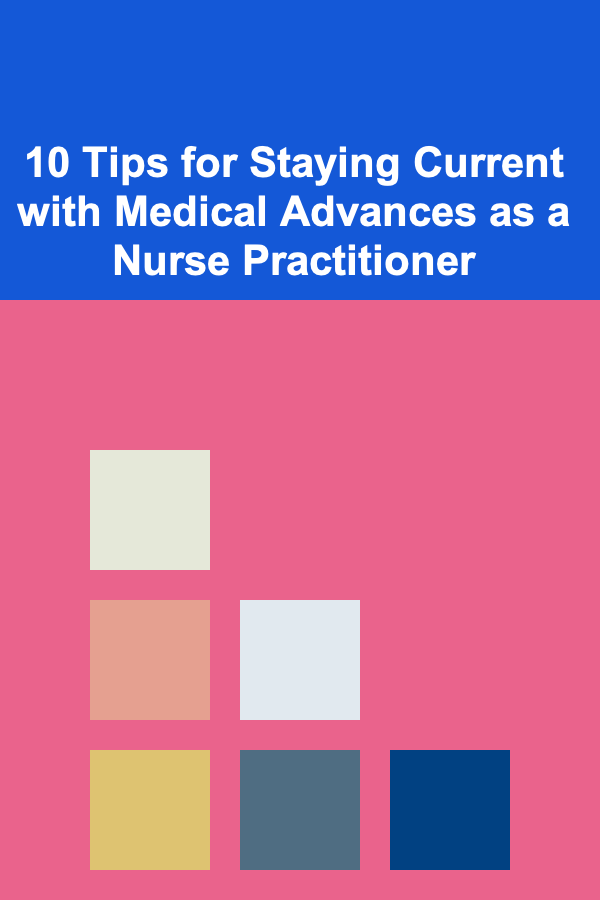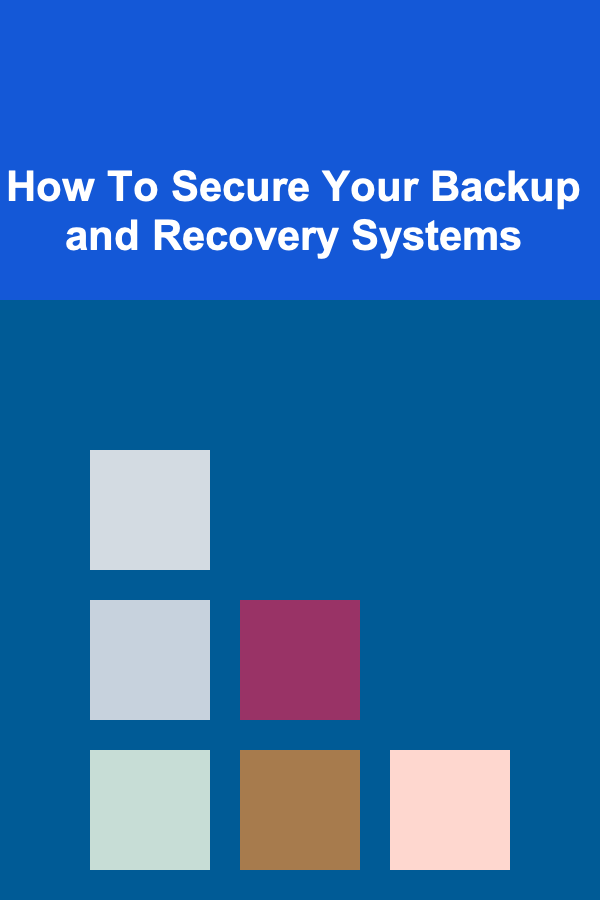
10 Tips for Staying Current with Medical Advances as a Nurse Practitioner
ebook include PDF & Audio bundle (Micro Guide)
$12.99$5.99
Limited Time Offer! Order within the next:

Nurse Practitioners (NPs) are at the forefront of patient care, providing a wide range of services from diagnosing and treating illnesses to promoting health and wellness. As healthcare continues to evolve, so does the role of the NP. Staying current with medical advances is essential to providing the best possible care to patients and maintaining a high standard of practice. With the rapid pace of medical innovation, it can sometimes feel overwhelming to keep up. However, by adopting specific strategies, Nurse Practitioners can stay informed and ensure they are delivering evidence-based, up-to-date care. Here are 10 tips for staying current with medical advances as a Nurse Practitioner.
Subscribe to Reputable Medical Journals
Reading peer-reviewed journals is one of the most effective ways to stay informed about the latest medical research, evidence-based practices, and treatment guidelines. Medical journals cover a wide range of topics, including new drug therapies, diagnostic tools, and emerging healthcare trends. As a Nurse Practitioner, dedicating time to reading these journals can significantly enhance your knowledge base.
Tip:
- Choose journals relevant to your specialty : Select publications that focus on your specific area of practice, whether that be family medicine, pediatrics, geriatrics, or another field. Journals such as The Journal of the American Association of Nurse Practitioners (JAANP) , The Lancet , American Family Physician , and Journal of Clinical Nursing are excellent sources.
- Set a regular reading schedule: Schedule time each week to read the latest articles, so you stay consistently updated without feeling overwhelmed.
Attend Medical Conferences and Workshops
Medical conferences and workshops are invaluable opportunities to learn from experts, interact with peers, and discover new technologies and treatment modalities. Attending these events allows Nurse Practitioners to gain hands-on experience with new tools and methodologies, as well as hear directly from researchers and practitioners about the latest medical advancements.
Tip:
- Prioritize key conferences : Choose conferences that align with your specialty and interests. Events hosted by organizations such as the American Association of Nurse Practitioners (AANP) or The American College of Nurse Practitioners (ACNP) are great starting points.
- Network with peers: Networking with other healthcare professionals at these events can lead to valuable collaborations, insights, and resource sharing.
Leverage Online Medical Education Resources
Online resources have made it easier than ever for Nurse Practitioners to access continuing education materials, webinars, and up-to-date research. Many institutions offer courses, webinars, and online communities where NPs can enhance their skills and knowledge without leaving their homes.
Tip:
- Enroll in reputable continuing education (CE) programs: Many universities, professional organizations, and medical institutions offer online courses for Nurse Practitioners. These courses often provide CME (Continuing Medical Education) credits.
- Use educational platforms : Websites like UpToDate , Medscape , and BMJ Learning provide evidence-based, peer-reviewed information that is regularly updated.
Follow Influential Healthcare Thought Leaders
Social media and online professional networks have given rise to a new way to stay current with medical advances: following influential thought leaders. These professionals often share the latest research, opinions, and clinical practices on platforms like Twitter, LinkedIn, or even YouTube.
Tip:
- Identify respected figures in your field: Look for established clinicians, researchers, and educators who regularly share their insights on recent developments in medicine.
- Engage in discussions: Social media allows you to interact with experts, ask questions, and exchange ideas. Engaging in these conversations can deepen your understanding and help you apply new concepts to your practice.
Participate in Peer Review and Collaborative Case Discussions
Peer review and collaborative case discussions are fundamental aspects of continuous learning in healthcare. Participating in these activities allows Nurse Practitioners to learn from colleagues, share knowledge, and gain feedback on their clinical decision-making processes.
Tip:
- Join or form a peer review group: Participate in or create a group of NPs who meet regularly to discuss cases, review research, and exchange clinical experiences. This collaborative learning environment fosters continuous improvement.
- Participate in online forums and case study groups : Many online platforms, such as Doximity and Figure 1, allow healthcare professionals to discuss cases, share insights, and stay informed about emerging trends.
Use Evidence-Based Clinical Guidelines
Evidence-based clinical guidelines are essential tools for Nurse Practitioners, ensuring that care is based on the most up-to-date, scientifically proven information. By incorporating these guidelines into daily practice, NPs can stay aligned with the latest treatment protocols and standards of care.
Tip:
- Access reputable guideline databases : Websites like National Guideline Clearinghouse and UpToDate offer easy access to current clinical guidelines across specialties.
- Adopt an evidence-based approach: When faced with clinical decisions, always refer to evidence-based guidelines to ensure you are providing the highest standard of care.
Seek Mentorship and Clinical Supervision
Mentorship and clinical supervision are powerful tools for professional growth. Experienced Nurse Practitioners or physicians can offer valuable insights, feedback, and guidance, helping you stay current with both clinical practices and new medical trends.
Tip:
- Find a mentor in your field: Look for a senior colleague with extensive experience who can provide advice, share knowledge, and keep you informed about industry changes.
- Seek out opportunities for clinical supervision: Regular supervision allows for continuous feedback on your clinical skills and provides a platform for learning new methods and techniques.
Stay Informed About New Medical Technologies
The field of healthcare technology is rapidly evolving. From diagnostic tools to patient management systems, new technologies can significantly improve patient outcomes and clinical efficiency. As a Nurse Practitioner, staying current with these advancements is vital.
Tip:
- Learn about new diagnostic tools and treatments: Stay up-to-date with the latest medical devices, apps, and treatments that may be applicable to your practice. For example, new telemedicine platforms, wearable devices, and AI-driven diagnostic tools are transforming healthcare.
- Understand the role of digital health: Digital health technologies, including electronic health records (EHR) systems, telemedicine, and health tracking apps, can streamline patient care and help you stay connected with your patients in innovative ways.
Engage in Research and Clinical Trials
Engaging in research or participating in clinical trials can significantly enhance your understanding of cutting-edge medical practices and contribute to the development of new treatments. Whether you are directly involved in conducting research or just staying informed about ongoing trials, this engagement helps you stay at the forefront of medical advances.
Tip:
- Collaborate with research institutions: Partnering with universities or research organizations can provide access to new findings and clinical trials.
- Stay updated on clinical trial results : Platforms such as ClinicalTrials.gov provide access to ongoing and completed clinical trials, giving you insight into the latest treatment options and research outcomes.
Foster a Lifelong Learning Mindset
The healthcare field is dynamic, with new treatments, techniques, and technologies emerging regularly. As a Nurse Practitioner, maintaining a mindset of lifelong learning is crucial to staying current and offering the best care to your patients.
Tip:
- Embrace a growth mindset: View challenges as opportunities to learn and grow. Stay curious and open to new ideas and innovations.
- Reflect on your practice: Regularly assess your skills and knowledge, and be proactive in identifying areas for improvement. Lifelong learning doesn't just involve gaining new knowledge but also improving your existing practice.
Conclusion
Staying current with medical advances is not just a professional responsibility---it's a way to ensure that Nurse Practitioners provide the highest quality care to their patients. By committing to continuous learning through various methods such as reading journals, attending conferences, and collaborating with peers, NPs can remain at the cutting edge of healthcare. The tips outlined here are just a starting point for integrating new knowledge into your practice, but the key is to stay engaged, curious, and proactive in your pursuit of excellence. As the medical field continues to evolve, so too should your knowledge and skills, ensuring that you are always prepared to meet the needs of your patients with the most up-to-date care possible.
Reading More From Our Other Websites
- [Home Budget Decorating 101] How to Personalize Your Space on a Budget with DIY Projects
- [Personal Investment 101] Building Passive Income with Deep Learning SaaS Solutions
- [Home Staging 101] How to Stage Your Home Without Overwhelming Potential Buyers
- [Personal Care Tips 101] How to Find the Best Mascara for Mature Lashes
- [Personal Care Tips 101] How to Use Dry Shampoo on Straight Hair
- [Home Soundproofing 101] How to Create a Quieter Home with Soundproof Windows and Proper Sealing Techniques
- [Home Staging 101] How to Create a Functional and Aesthetic Home Office
- [Home Space Saving 101] How to Make the Most of Your Hallway with Space-Saving Ideas
- [Personal Care Tips 101] How to Choose the Best Lipstick for Hot and Humid Weather
- [Home Party Planning 101] How to Plan a Garden Party with Beautiful Outdoor Decor

How to Choose Dining Room Accessories That Fit Your Style
Read More
How to Create a Holiday Centerpiece That Wow's Your Guests
Read More
How to Develop Your Influencing Skills
Read More
How to Understand the Role of Live Sound Engineers
Read More
How To Secure Your Backup and Recovery Systems
Read More
How To Craft a Killer First Chapter
Read MoreOther Products

How to Choose Dining Room Accessories That Fit Your Style
Read More
How to Create a Holiday Centerpiece That Wow's Your Guests
Read More
How to Develop Your Influencing Skills
Read More
How to Understand the Role of Live Sound Engineers
Read More
How To Secure Your Backup and Recovery Systems
Read More